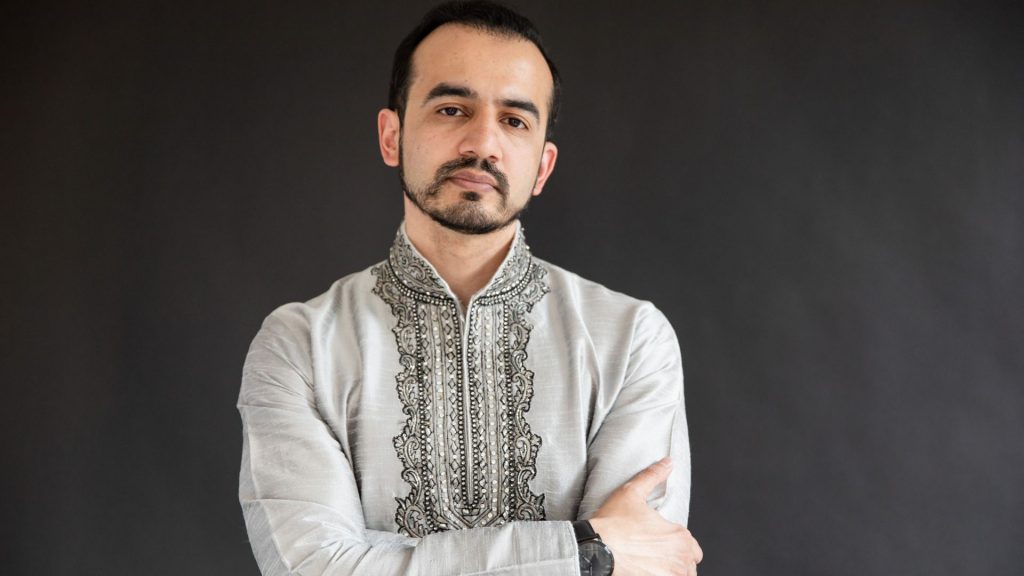Since we entered the blessed month of Ramadan, Muslims in the northern hemisphere—where days are longer—have already made their food plans.
One friend has already declared,
“You will see me posting a large number of delicious-looking foods accompanied with a lot of Arabic text. Do not despair. This is my annual Ramadan tradition of publicly fantasizing about food and complaining about how ridiculously and illogically long the fasting days are in the north of England.”
Not only my friend will be doing that.
It’s becoming a tradition for so many Muslims to celebrate Ramadan by sharing photos of their favorite dishes during the month of fasting. It’s social media!
With this in mind, it is an established norm that every mother, wife, sister, and daughter will find herself in the kitchen, often from early afternoon, preparing banquets on a near-daily basis.
Indeed, we all have stories of going to this auntie’s house for one dish and to that auntie’s house for another.

We remember the amazing samosas, the fabulous kebabs, the enriching sweet rice, and fried everything.
Almost every memory comes down to the women of the household who labored over the meal.
But What About the Men?
Ah, the men are busy with optional prayers, reciting the Qur’an, and listening to spiritual talks.
Many will not even step into a kitchen or bother with repairing their own damaged clothes.
How many Muslim men know how to tie off a sewing thread? The Prophet Muhammad, on the other hand, performed many such household chores.

At a time when girls were buried alive, women were denied rights, and even more women were culturally normalized as slave girls, there to serve their masters, the prophet could easily have outsourced these basic duties to a slave, a woman, his wives, or any of the women in his family.
Instead, he shared the household workload.
By doing so, the prophet is different from the vast majority of Muslim men around the world today, who define the household as a woman’s domain, despite neither the Qur’an nor the prophet, by his example, doing so.
So I ask this question. Do Muslims take pride in following the prophet’s example?

We seek to exemplify it, take the best from it, and implement it in our daily lives.
Why is it then, when it comes to household chores, that most Muslim men have chosen to ignore Prophet Muhammad’s example?
While some opine that the home is a woman’s domain, classical Sunni Muslim scholars such as Imam Malik, Imam Shafi, and Abu Hanifa all held the view that a wife is not obliged to serve her husband in the home.
When asked, Aisha, the prophet’s wife, said that Muhammad would do the chores.
In another, when addressing a group of men, she replied that the prophet did what any of you (men) would do in their house: that is, chores.
Ramadan is a time of year where all of us engage in more forms of worshiping God, from reading the Quran – preferably in a language we can understand so as to give it meaning – to standing and prostrating to God in our prayers.
But these extra prayers were not limited to men. Women too participated.
Imam Malik, for example, opined that it is preferable for women to perform i`tikaf during Ramadan in the mosque¹. I`tikaf is the practice of spending several days in the mosque to devote oneself to the worship of Allah.
Ibn Qayyim and Ibn Hajar both shared that women attended i`tikaf with the prophet in the mosque, even during menstruation².
Ibn Hajr and Abu Shuqqah relayed that women would stay in the mosque for such long periods of time that they would even sleep in the mosque³.

If, as our historians and scholars observed, women were in the mosque with the prophet, praying, sleeping, and engaging in additional forms of worship and prayers, who was at home cooking the food, cleaning the house, and doing the chores?
One of the most important lessons that faith teaches us is that we must want for others what we want for ourselves.
This applies to strangers as well as members of our families, and especially to the women in our homes.
This Ramadan, let us, as men, consider that we want the women of our homes to have the same luxury of time to engage in additional forms of prayer as we have.
Let us men take greater responsibilities in the home, from cooking to cleaning to doing the everyday chores.

Let us, as men, use this Ramadan to remember the sunna of Prophet Muhammad, who, rather than having the women in his household serve him, shared in the household duties.
If we want to revive one tradition of the Prophet Muhammad this Ramadan, let it be a better contribution to household duties.
Women are not here to serve men. Instead, together, men and women are here to serve God.
If we, as men, expect women to do more than their fair share, neglecting our own contribution to the household because it is expected in our culture, then it is we who will have to answer to God for being unjust to our wives, daughters, mothers, and sisters.
For the men who are already involved in the running of their home: well done.
For the rest of the men out there: if you insist that you are following the example of Prophet Muhammad, then revive his traditions of being involved in household chores.
At the most spiritual time of year, where we seek to uplift our soul, elevate our spirit, and feed our character, let us as men be more involved, and perhaps pick up a cloth and start washing the dishes.
Happy Ramadan!!
This article is from our archives.



